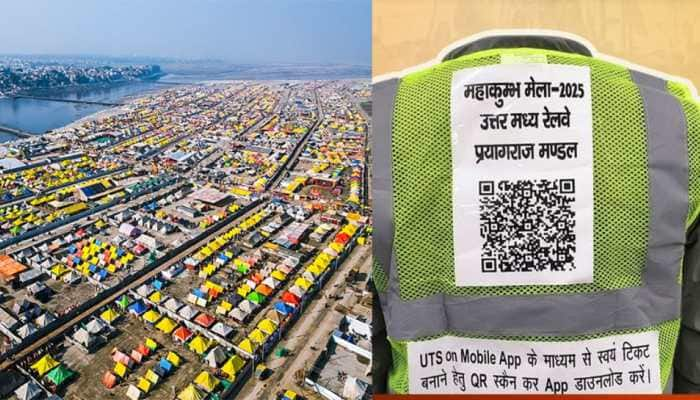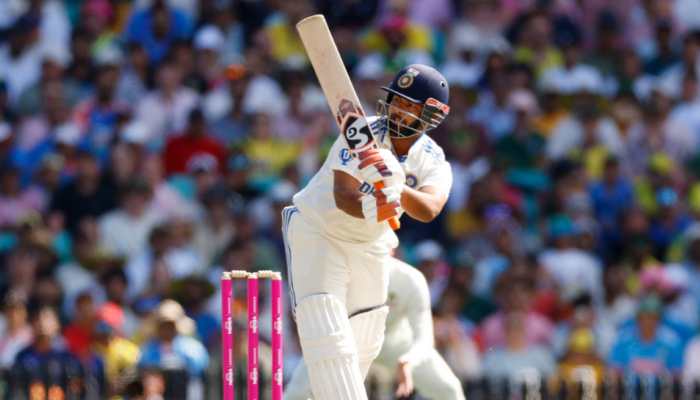Old habits do die, sometimes
Old habits die hard, they say - but they do die sometimes as experience in cleanliness is showing on the capital`s pride - the `Delhi Metro`.
Trending Photos
)
New Delhi: Old habits die hard, they say - but they do die sometimes as experience in cleanliness is showing on the capital's pride - the 'Delhi Metro'.People in the city, known for their propensity to litter, are actually restraining themselves from spitting or throwing waste and helping keep the Metro property spic and span, says a passenger, a regular on the Metro.
You hardly find 'paan' (betel leaf) stains on the walls, ubiquitous plastic bags lying on platforms, on the tracks or inside the train coaches, says another passenger.
But as one moves out of a metro station it is the same old story, the familiar sight of litter, just outside the Metro station! "It is a cyclic effect. If you keep an area clean it is a human tendency to maintain the cleanliness. If we keep a place dirty, people will dirty it," says Anuj Dayal, Chief Public Relation officer (CPRO), Delhi Metro Rail Corporation Limited (DMRC).
"We have 'cleaning gangs' at every station. These gangs, employed by private companies and monitored by the DMRC, look after the maintenance of the Metro. It is taking a lot of manpower and resources in keeping the Metro clean and we have been reasonably successful," Dayal says.
"Sometimes people do litter and dirty the platforms. But not so much as you would find outside," says a maintenance person at Patel Chowk Metro station.
Deterrence has played a role in educating people. "Defaulters are booked under Operation and Maintenance Act, 2002 of the Delhi Metro. Besides, CCTVs have been mounted at all metro stations. So if someone is creating nuisance it will be recorded on the cameras and can be used as evidence while booking people", says Dayal.
"Delhi has a unique set of problems. Many people do not care about cleanliness or anything," says Dr Iqbal Malik, founder and director of Vatavaran, an NGO working on socio-economic issues."The credit for the cleanliness in the Metro Rail must go to the authorities and not the people. I wish the authorities at other places were as strict as the metro," Dr Malik says.
A cleanliness survey conducted in 2007 by AC Neilsen ORG Marg ranked Delhi 9th on cleanliness among 18 state capitals surveyed.
The survey, aimed at understanding perceptions of citizens on the levels of cleanliness of their cities, brought forth demands from respondents for greater availability of dustbins in public places and greater participation by municipal administrations in maintenance of cleanliness.
The ranking suggests that the national capital is not half as worse as other state capitals but not half as good either.
"On an average about 5000-6000 tonnes of garbage is generated everyday in the city of Delhi. Roughly 1500 people are caught for dirtying public places. Although the fine is less the humiliation of appearing before a municipal magistrate is a strong deterrent against repeating the offence," says Deep Mathur, CPRO, MCD.
When a comparison between the Delhi Metro and the city is suggested in terms of cleanliness, Mathur says, " it is not right to compare the MCD and the Delhi Metro. Difficult areas, problem areas are with the MCD."
"The policy of the MCD on garbage management will never result in a zero-garbage Delhi. The MCD's plan is that of centralized garbage management. I think decentralized garbage management involving public participation is a good solution," says Dr Malik.
Whatever the reasons, we hope this habit, of keeping the metro premises clean, is logically practiced in the city as well and doesn't die an early death, says another regular traveller.
Bureau Report
Stay informed on all the latest news, real-time breaking news updates, and follow all the important headlines in india news and world News on Zee News.
Advertisement
Live Tv
Advertisement







)
)
)
)
)
)
)
)
)
)
